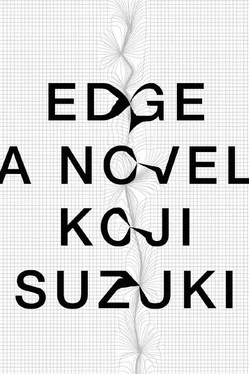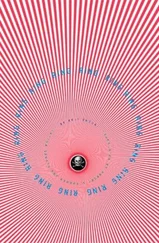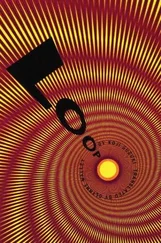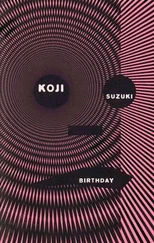Koji Suzuki - Edge
Здесь есть возможность читать онлайн «Koji Suzuki - Edge» весь текст электронной книги совершенно бесплатно (целиком полную версию без сокращений). В некоторых случаях можно слушать аудио, скачать через торрент в формате fb2 и присутствует краткое содержание. Город: New York, Год выпуска: 2012, ISBN: 2012, Издательство: Vertical, Жанр: Ужасы и Мистика, на английском языке. Описание произведения, (предисловие) а так же отзывы посетителей доступны на портале библиотеки ЛибКат.
- Название:Edge
- Автор:
- Издательство:Vertical
- Жанр:
- Год:2012
- Город:New York
- ISBN:978-1-935654-95-7
- Рейтинг книги:4 / 5. Голосов: 1
-
Избранное:Добавить в избранное
- Отзывы:
-
Ваша оценка:
- 80
- 1
- 2
- 3
- 4
- 5
Edge: краткое содержание, описание и аннотация
Предлагаем к чтению аннотацию, описание, краткое содержание или предисловие (зависит от того, что написал сам автор книги «Edge»). Если вы не нашли необходимую информацию о книге — напишите в комментариях, мы постараемся отыскать её.
Edge — читать онлайн бесплатно полную книгу (весь текст) целиком
Ниже представлен текст книги, разбитый по страницам. Система сохранения места последней прочитанной страницы, позволяет с удобством читать онлайн бесплатно книгу «Edge», без необходимости каждый раз заново искать на чём Вы остановились. Поставьте закладку, и сможете в любой момент перейти на страницу, на которой закончили чтение.
Интервал:
Закладка:
When she opened her eyes, the shapes around her were still dark. She remained motionless at first, trying to catch her breath before she reached for the clock on her bedside table. It read 9:11 a.m. She had overslept by quite a bit. As the details of her room began to come into focus, the darkness she had perceived initially began to fade.
For a full twenty minutes, Saeko remained under the covers and waited for her pulse to stop racing, ignoring both her need to urinate and the dryness in her throat. The refrigerator was only several meters away, but it seemed much farther. The thought of cold mineral water was appealing, but Saeko couldn’t yet bring herself to move.
Life had become so painful, it was unbearable. Lately, Saeko felt the same way each morning. Especially as the seasons shifted from autumn into winter, the wretchedness of living alone grew ever greater, almost tearing her to pieces. Her pent-up misery thrashed about wildly in her searching for an outlet.
Go ahead. Hurt me. Take my life, please .
Death seduced her. She lacked the courage to commit suicide, but if the natural flow of things were to lead her to death, Saeko wouldn’t resist at this point. She felt no attachment to life. Her reasons were indistinct, but they weren’t impossible to pinpoint.
The divorce she had gone through six months ago had done more damage to her, emotionally and physically, than she had ever anticipated. The idea that she was unfit for marriage deeply marred her confidence, intensifying her isolation. It convinced her that she was missing something other people had.
“There’s something deeply off about you. You’re like a transform fault. A human Fossa Magna,” her husband had said once in a fit of exasperation.
“The Fossa Magna is a great rift valley, not a transform fault,” Saeko had corrected him coolly.
“That’s exactly what I mean.”
He’d made similar remarks a number of times, though not exactly framed in those terms.
“You’re bizarre. You’re not normal.”
After being told the same thing enough times, Saeko had begun to suppose he might be right.
“Why do you always have to compare people? It’s driving me crazy!”
That was the only accusation that had really struck Saeko to the core; he had managed to hit the nail right on the head. When Saeko and her husband had lived together, Saeko had compared him to her father at every turn. Whenever she observed her husband failing at something her father could have easily done, Saeko deducted points from an imaginary scorecard.
No man on earth could live up to my father .
Even now, it was still true as far as Saeko was concerned. The pain of divorcing her husband of five years was nothing compared to the overwhelming loss she’d experienced when her father had gone missing. The amount of tears she shed now was paltry in comparison. Eighteen years ago, Saeko’s father had vanished suddenly without any explanation. He had been Saeko’s guardian and her only living relative. To this day, she hadn’t the faintest clue what had become of him or whether he was alive or dead.
Saeko’s mother had died thirty-five years ago during Saeko’s birth. From what she understood, there had been some sort of medical mishap, but Saeko’s father said little about the incident.
My loneliness began at birth .
Viewed in that light, it all added up. Saeko had come into the world just as her mother had left it, and her father had showered her with all of his love. But that had only intensified Saeko’s despair when her father had suddenly disappeared. It was as if a lid had been closed on her life, sealing her in darkness.
Perhaps that was why Saeko sometimes found herself seized by the sensation of being trapped in a dark, constrictive space, unable to move. It wasn’t a dream, a hallucination, or sleep paralysis — it was much more real and immediate. It was as if she were enclosed in some sort of gelatinous membrane; she could feel its rubbery walls. She huddled within it like a fetus, blind, unable to move her arms or legs, and in her stillness it was as if she were the last person on earth, wracked by a desolation that made her immobility worse. After a few minutes, Saeko usually recovered her ability to move, and the pounding of her heart gradually receded as well.
Saeko crossed her hands over her chest and took steady breaths, trying to persuade the palpitations to subside. As the fingertips of both hands grazed her breasts, she suddenly became aware of a slight, unfamiliar discrepancy in their symmetry as her fingers encountered a hard, tiny lump on the outer side of her left breast.
She drew her hand away quickly and lay motionless, gazing up at the ceiling. She had a habit of holding perfectly still and focusing inwards when faced with an ominous premonition — a condition she liked to call “going into a quantum superimposition state.” She wove together affirmations and denials both consciously and unconsciously until a single conclusion emerged. Then the message traveled from her mind to her body.
Saeko unfastened two buttons on her pajamas, slipped a hand through the opening, and carefully explored both breasts — breasts that hadn’t been caressed by a man for a year. Beginning at the nipples and making three progressively larger circles, Saeko once more detected the lump on the underside of her left breast. She hadn’t imagined it. It was unmistakable and right where she’d felt it earlier.
Oh, no .
Saeko didn’t know what breast cancer would feel like, but she focused inwards, straining to detect some sort of unfamiliarity. Her digestive system, respiratory system, circulatory system, urinary system, reproductive system, nervous system … She pictured each set of organs in turn, trying to perceive the birth and spread of a malignant tumor. But of course she didn’t feel anything. She gave up and instead tried to remember when she’d last had a check-up.
Two years ago. Maybe three . Her numbers had all been fine. In fact, the data had shown her to be almost too healthy for a woman in her mid-thirties.
At the thought of breast cancer, and the realization that death might lurk just beyond it, a chill ran up Saeko’s spine. Just moments ago, she had denied to herself that she feared death at all, but that fearlessness evaporated with the eerie sensation of discovering an abnormality in her body.
She had never had much libido, but as she stroked her breasts, she imagined her hands as belonging to some faceless man. In an instant, the possibility of death and sex seemed to converge in a single spot in her breasts.
It’s probably mastitis , she told herself. Banishing the fear of breast cancer with a convenient alternative, Saeko rose from her bed. Lying around gave her mind too much freedom to wander. Better to get up quickly and get to work. She had to keep moving if she wanted to forget her torments. Some people worked to make money. Saeko worked to live.
Currently, she was assisting with a television program. She’d debated whether or not to get involved, but before she knew it she’d been drafted into the project as a de facto team member.
Still seated on her bed, Saeko reached for the remote control and turned the TV on. As the sound came on, the words “breast cancer” evaporated from her mind, though her left hand continued unconsciously stroking her breast.
The incident had been featured on a tabloid-style TV special that February. Just like today, she’d been lying around in bed and had switched the TV on with the remote. The screen had lit up with the image of a stately farmhouse set against the vivid greenery of a hillside. Then too, the time had been just after 9:00 a.m.
Saeko remembered the program with astonishing clarity. The house was of a traditional Japanese architectural style, the kind you saw sometimes in mountain villages. The female reporter walked slowly up the gentle incline of the paved road in front of the house as she described the incident to the viewers.
Читать дальшеИнтервал:
Закладка:
Похожие книги на «Edge»
Представляем Вашему вниманию похожие книги на «Edge» списком для выбора. Мы отобрали схожую по названию и смыслу литературу в надежде предоставить читателям больше вариантов отыскать новые, интересные, ещё непрочитанные произведения.
Обсуждение, отзывы о книге «Edge» и просто собственные мнения читателей. Оставьте ваши комментарии, напишите, что Вы думаете о произведении, его смысле или главных героях. Укажите что конкретно понравилось, а что нет, и почему Вы так считаете.












